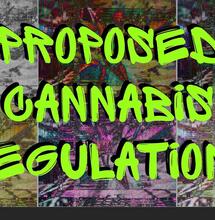Cannabis psychosis admissions rose after drug reclassified to Class B

Study suggests home secretary's attempt to reduce cannabis-induced psychosis by upgrading the drug to Class B failed
Study suggests home secretary's attempt to reduce cannabis-induced psychosis by upgrading the drug to Class B failed
Research has suggested that the number of hospital admissions for psychosis caused by cannabis use started to decline after its classification was lowered to Class C in 2004, but started to increase again after it went back up to a Class B drug in 2009. This calls into question the decision to reclassify in 2009, which was at the time justified by the purported link between cannabis and schizophrenia.
The study published in the International Journal of Drug Policy (behind a paywall), used a technique which estimates changes in an outcome over time to assess whether admission levels for psychosis due to cannabis use changed after the drug was twice reclassified.
Although cannabis use decreased overall during the period investigated (2001 to 2010), and general diagnoses for psychosis decreased slightly over the same period, a different pattern is seen for admissions for psychosis deemed to be due to cannabis use.
Ian Hamilton, the lead author on the study, told me: "We were a bit confused, it wasn't what we were expecting". He suggested some possible reasons for the pattern seen, which he concludes in the paper is unlikely to be caused by the changes in classification. Patterns in hospital admissions have changed in recent years, with a move away from residential care. Patients are more likely to be kept in the community, avoiding the need for hospital admission. So this study only assesses extreme cases of psychosis, and people who have psychosis but don't get hospitalised are missed.
He also mentioned that there is anecdotal evidence that psychiatrists might see cannabis-induced psychosis as a less stigmatised or severe diagnosis than schizophrenia, so might be more inclined to use that. He has future plans to interview psychiatrists to see whether this is the case. For these reasons, it cannot be concluded that the changes in classification caused the changes in admission levels, as these other factors which have changed over time cannot be controlled for.
The type of cannabis available to users has changed over this time period too, with cannabis resin becoming less available, and skunk becoming more common. There is some suggestion that differing ratios of two of the active compounds (THC and cannabidiol) may result in skunk being more likely to cause psychosis, as it has very low levels of cannabidiol. However, the evidence is not conclusive that cannabidiol protects against psychosis. Also, the type of cannabis used by the people in the study was not assessed, so this can't be investigated with these data.
It is important to note that the absolute numbers of people being admitted to hospital with cannabis psychosis is small, somewhere between 40 and 100 per month, across the whole of England. The differences seen may be random fluctuation due to small numbers, although the authors accounted for this statistically as much as they could. They took possible seasonal variation into account.
Cannabis became a controlled drug in 1925, and this legislation was rationalised in 1971, when the Misuse of Drugs Act was passed. It was initially placed in Class B, the middle category in a hierarchical classification system meant to represent the relative dangers of different drugs. In January 2004 it was reclassified into the lowest category (Class C). David Blunkett was in charge of this decision at the time, and stated that the change would protect the credibility of drug education, as the classes would more adequately reflect actual harms.
But media portrayal of his decision was largely negative, and after 2004 reports that "stronger" strains of cannabis were causing psychosis, the government twice asked their Advisory Council on the Misuse of Drugs (ACMD) to assess the evidence. Despite the board recommending that cannabis remained a Class C drug, when Jacqui Smith (then home secretary) announced the reclassification, she used harm to mental health as her main justification for the decision.
Steve Rolles, senior policy analyst for Transform Drug Policy Foundation, a charitable think-tank campaigning for drug control and regulation rather than prohibition, told me: "There is no evidence from the admissions data to support the emotive political and media discourse used to justify the reclassification back to (Class) B. This is hardly surprising as drug policy has rarely been about science - it's far more often about sensationalist media headlines and populist political posturing. Jacqui Smith should have listened to the ACMD."
http://www.guardian.co.uk 18/07/2013



